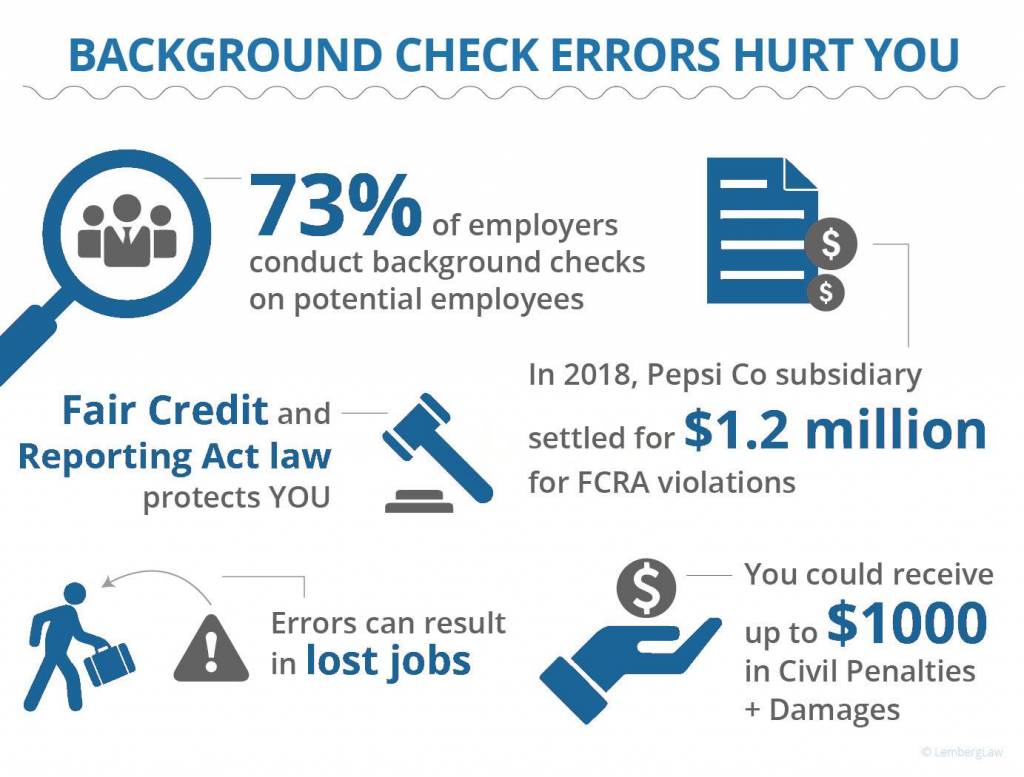Legal help that’s
free for you.
Just a phone call away.
What do you have to lose?

It is crucial to understand your rights under the Fair Credit Reporting Act (FCRA) to ensure fair treatment in the employment process. Before your employer obtains a consumer report about you, they must inform you in writing, in a separate notice, that they may use this information for employment-related decisions. They also need your written permission, which can be included within the notification. Moreover, they must certify their compliance with FCRA requirements and promise not to misuse the information or discriminate against you.
If your employer intends to take an adverse action based on the information in your consumer report, they must provide you with a notice that includes a copy of the report and “A Summary of Your Rights Under the Fair Credit Reporting Act.” This step allows you to review the report and address any inaccuracies before the adverse action is taken.
After an adverse action, your employer is required to notify you orally, in writing, or electronically, informing you of the decision and providing specific details about the consumer reporting company. They must also let you know that the decision wasn’t made by the reporting company and that you have the right to dispute any inaccurate information and request an additional free report within 60 days.
Additionally, if your employer uses investigative reports, they must provide you with written notice of their intent to request such a report, as well as your right to request further disclosures and a summary of the report’s scope and content. Understanding these FCRA provisions empowers you to protect your rights and ensure the accuracy of information used in your employment decisions.
Here are some of the primary reasons behind inaccuracies that can appear in your background check report:
Knowledge is power. When you understand what employers and background screening companies can and cannot do under the FCRA, you can make them pay.
Under the law, you can sue in federal court and recover $1,000s.
When you’re ready to fight back, you need an attorney by your side who has deep knowledge of the FCRA, and who has vast experience in holding employers and background screening companies accountable. That’s where Lemberg Law comes in. You can count on us to stand up for your rights and deliver the justice you deserve.